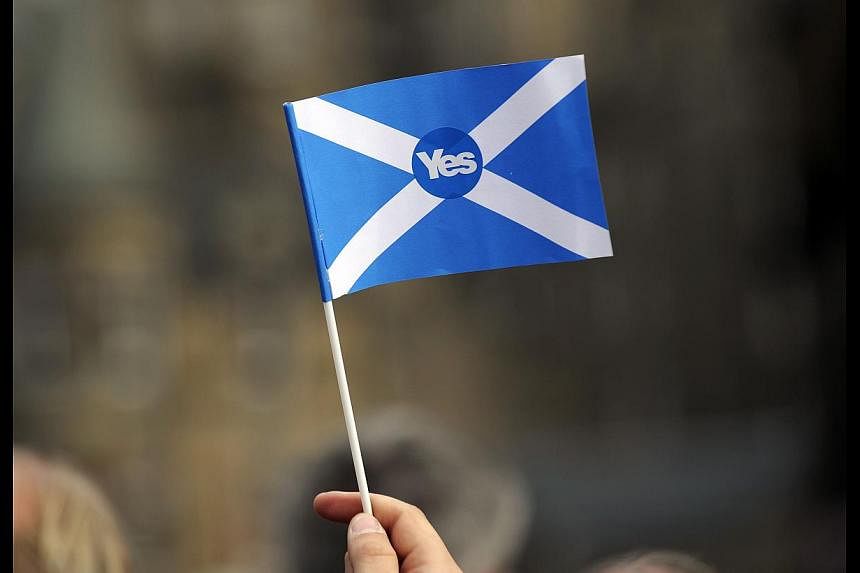A VOTE for independence from the people of Scotland will not only shatter a union with Britain which has lasted more than 300 years but will also plunge the rest of the United Kingdom into a political meltdown and send ripple effects throughout Europe.
The day after a "yes" to independence, Scotland's Chief Minister Alex Salmond who, until now, has been combative in his demands for separation will likely suddenly switch on the charm: it's in his interest for the lengthy and arduous divorce negotiations which lie ahead to be conducted as smoothly as possible.
But the government in London will be facing a huge backlash from an English-dominated electorate smarting after this defeat; the rallying cry will be that, if the Scots voted for independence, they should pay for it. Compromises won't come easy.
British Prime Minister David Cameron, who precipitated this referendum on the assumption that it will defeat the nationalists, will come under heavy pressure from both the opposition and his own party to resign.
A general election - now scheduled for May next year - is expected to be brought forward, with fresh elections promised less than two years thereafter, after Scotland gets its independence.
Although Mr Cameron's ruling Conservatives will be punished, first by the electorate, in the long run it is the opposition Labour Party that will suffer the most.
Labour relies on Scotland for at least 50 parliamentary seats and, once Scotland exits the UK, the party will have almost no chance of gaining power in London, unless it transforms itself into an English party. The political battle will, therefore, be not only between the Scottish and British governments, but within each party as well.
Fringe movements such as the UK Independence Party (Ukip) will emerge strengthened; Ukip's demand for a referendum on whether Britain should leave the European Union will be almost impossible to resist. London will also face almost immediate pressures from Wales for a larger measure of autonomy.
The negotiations with Scotland will be hard and ill-tempered, especially since international confidence in Britain will plunge, and the British stock market will be hammered after the referendum result is known.
The Scottish government will probably offer to retain Britain's nuclear submarine bases on its soil in return for economic concessions. But the biggest sticking point will be that of the currency.
London will maintain its refusal to allow Scotland to use the British pound; at best, a compromise will give Scotland the right to use the pound for a short period of a few years, after which the Scots will either be forced to issue their own currency or adopt the euro.
Scotland's independence will also encourage separatist movements in Europe. It will certainly embolden those pushing for independence in the Catalan region of Spain, where a referendum is planned for November.
Belgium may follow suit, and the ethnic Hungarians in Slovakia and Romania in Eastern Europe are almost certain to try to hold their own separation referendums as early as the end of next year.
Largely in order to prevent such developments, European governments will make it very difficult for Scotland to join the European Union.
It was always fanciful of the Scots to believe that they could join the EU on the day of their independence, and as part of the independence deal; it's far more likely that Scotland will need years before it is allowed to join, largely in order to persuade other European separatists that breaking up existing states carries grave consequences.
Officials inside the European Commission, the EU's executive, estimate that Scotland may have to wait five years; the Scots will purposely be made to sweat.
The rump United Kingdom, with its flag changed and its currency under attack, will soldier on as a diminished state.
But it will be seen as a country on the defensive, struggling to continue justifying its permanent seat on the United Nations Security Council, desperate to maintain its territory, resentful and suspicious of its neighbours.
It will be an inward-looking Britain, and it will be at least a decade before the country recovers its poise.
The negotiations with Scotland will be hard and ill-tempered...and the British stock market will be hammered after the referendum result is known.

